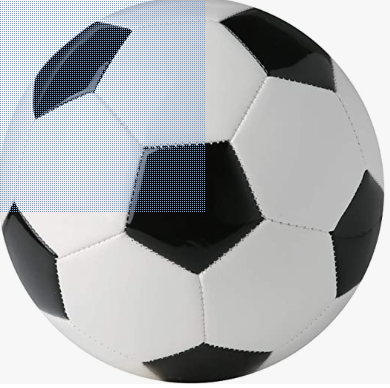June 17, 2022

That’s the latest word on corruption in the Islamlic Republic, from the horse’s mouth itself.
A former Iranian football referee has broken his silence about corruption in the game and the influence of what he terms the country’s “football mafia.”
On October 26, Vahid Salehi made a series of stunning claims on state radio about his former colleagues “selling” penalties at league competitions, making back-room deals with sports moguls and fiddling their expenses. An unjustified but well-timed penalty kick, he claimed, would now set teams back around 1 trillion rials.
Though the revelations gained a lot of traction in the media this week, the allegations are hardly new to the Iranian soccer community. For years, according to both managers and a few vocal coaches, some Iranian clubs have set aside special budgets just for sweetening referees.
“Two seasons ago,” Salehi told the state broadcaster, “the two teams of Mes from Kerman and Aluminium from Arak had a match. Mes didn’t advance to the Pro League after scoring one goal too few. This is what happens: Team X says it’s spent 40 billion tomans for one year. In fact, I’m going to spend 41 billion tomans, and leave that extra one billion for the soccer judiciary”—that is, payments to referees.
The issue of “contaminated whistles” in Iranian soccer has been raised many times over the years. But IranWire says never have the allegations yielded a result. One very clear instance was the case of Mohsen Ghahremani, who oversaw matches for the Iran Pro League from 2001 to 2015. In September 2013, after an historic match between Persepolis and Esfahan’s Sepahan, striker Ali Daei publicly accused Ghahremani of attempted extortion.
“I knew the referee was bending toward the other team,” Daei said. He claimed that, before the match, the referee had sent a message to the assistant coach of Persepolis asking him to deposit money into his account.
After Daei’s revelations, Ghahremani was banned from the profession. But he returned as a referee just 16 months later by order of the national Football Federation.
In the same year, during a Tehran Derby match between Esteghlal and Persepolis, a perfectly healthy goal by Persepolis’s Mohammad Nouri was declared offside by referee Morteza Karimi. In a subsequent report by Khabar-e-Razshi, Karimi was quoted as having openly said: “A friend of Parviz Mazloumi, the head coach of Esteghlal, offered me 16 million tomans and a 50-inch LCD TV to save Esteghlal from losing the match.”
Other actors further up the chain are sometimes involved, IranWire reported. Back at the end of the 2005-2006 season, Peykan was promoted to the Pro League. Two months after the decisive play-off match between Peykan and Damash, one of the directors of the Football Federation’s referee committee attended a party hosted by Sepahan. There, they told a journalist: “After the game, they called up our referee and offered him 20 million tomans. The referee called me and said, ‘They’d brought an envelope for me and the assistant referees.’ We immediately told him to come back, and changed the refereeing team. I called Peykan club myself and said, ‘From now on, come to the boss; don’t go and talk to the referee!'”
IranWire says the Iranian Football Federation itself has done nothing to prevent match-fixing, but has made the desultory gesture of inviting some referees to speak with its ethics committee. Mansour Ghanbarzadeh, a member of the Football Federation’s board of directors, has claimed: “The majority of our referees are clean but there are some flaws.” With regard to the most recent revelations from Vahid Salehi, Federation secretary general Hassan Kamranifar simply said: “I haven’t heard from Mr. Salehi, but we are investigating.” He, too, used to be an international referee.